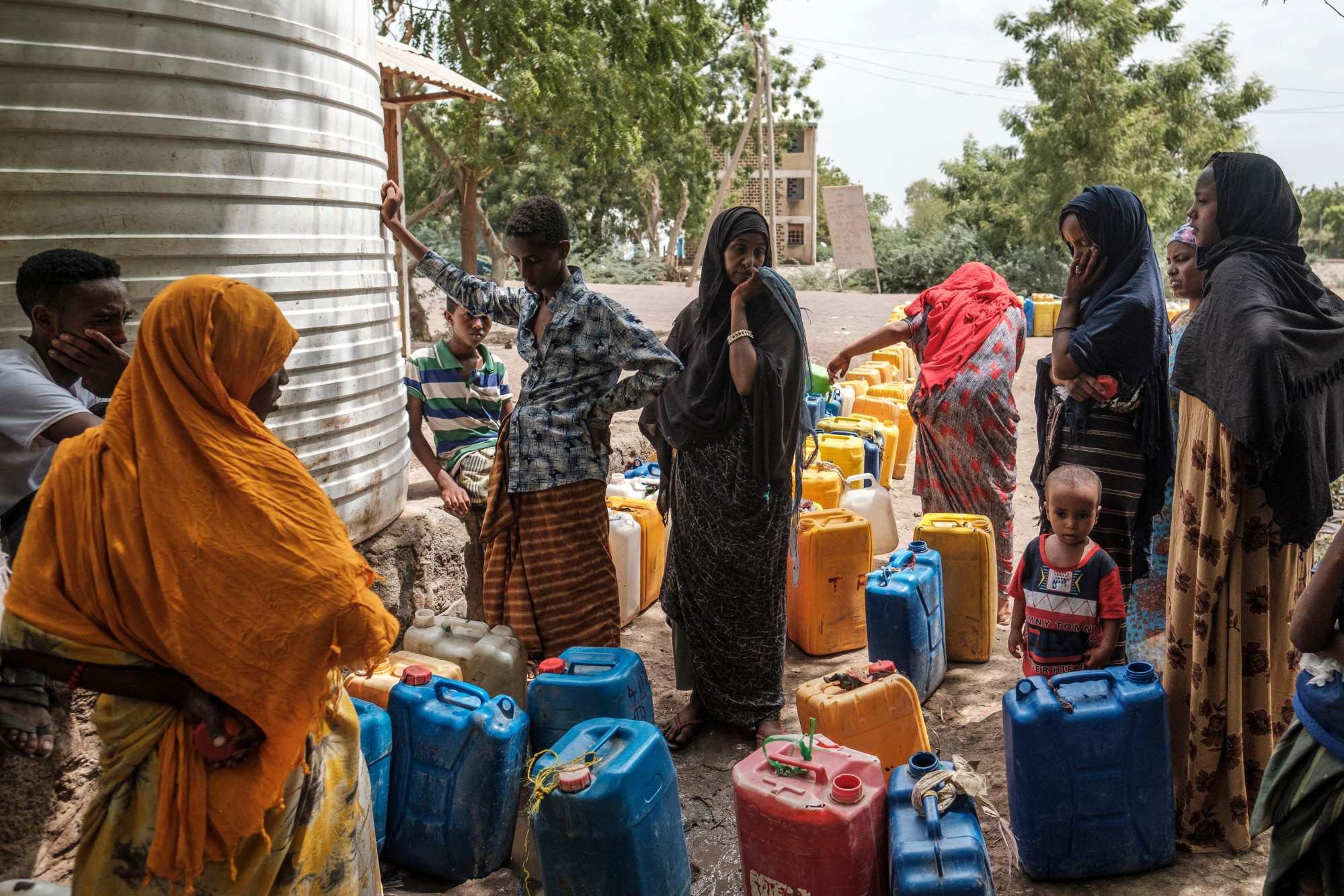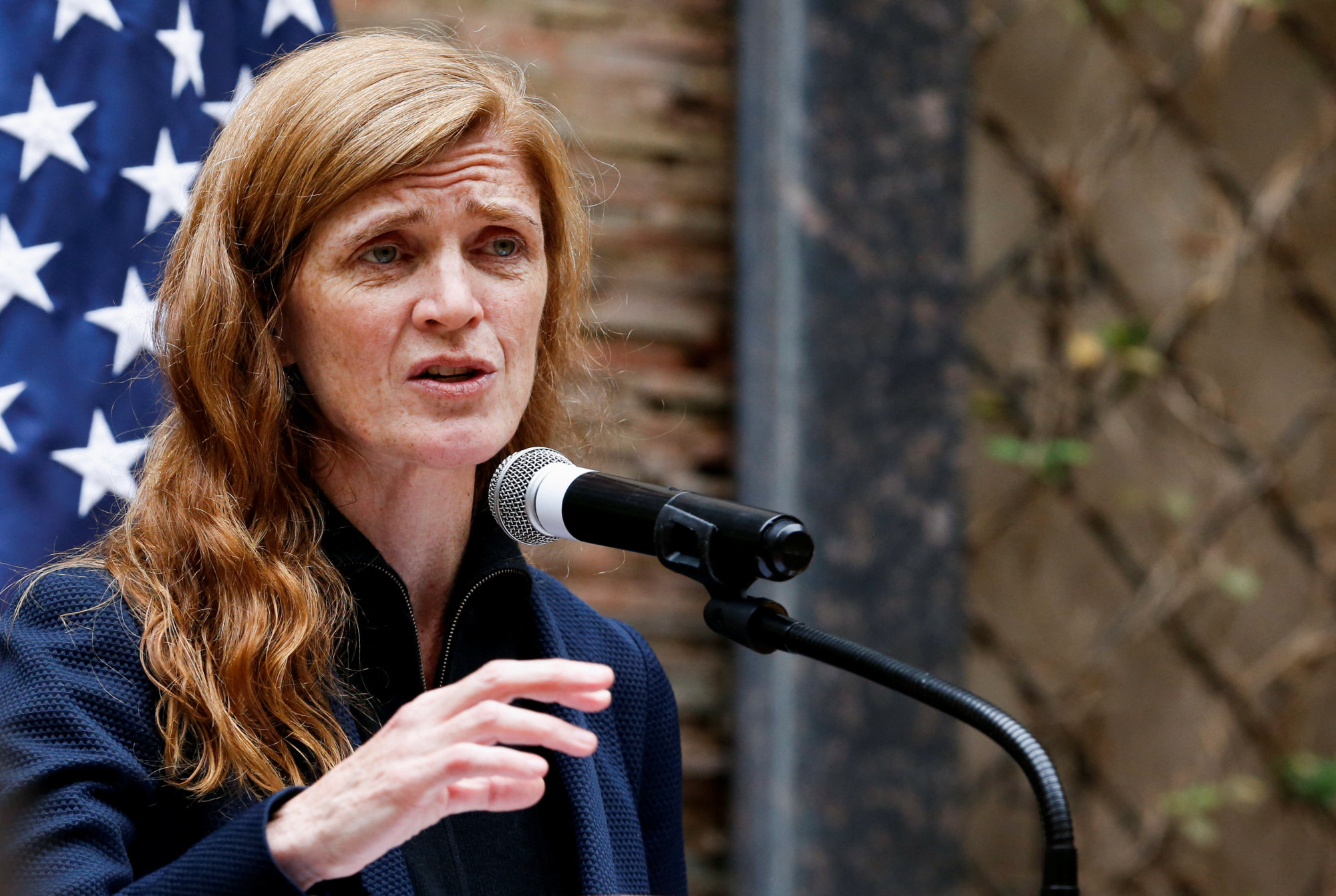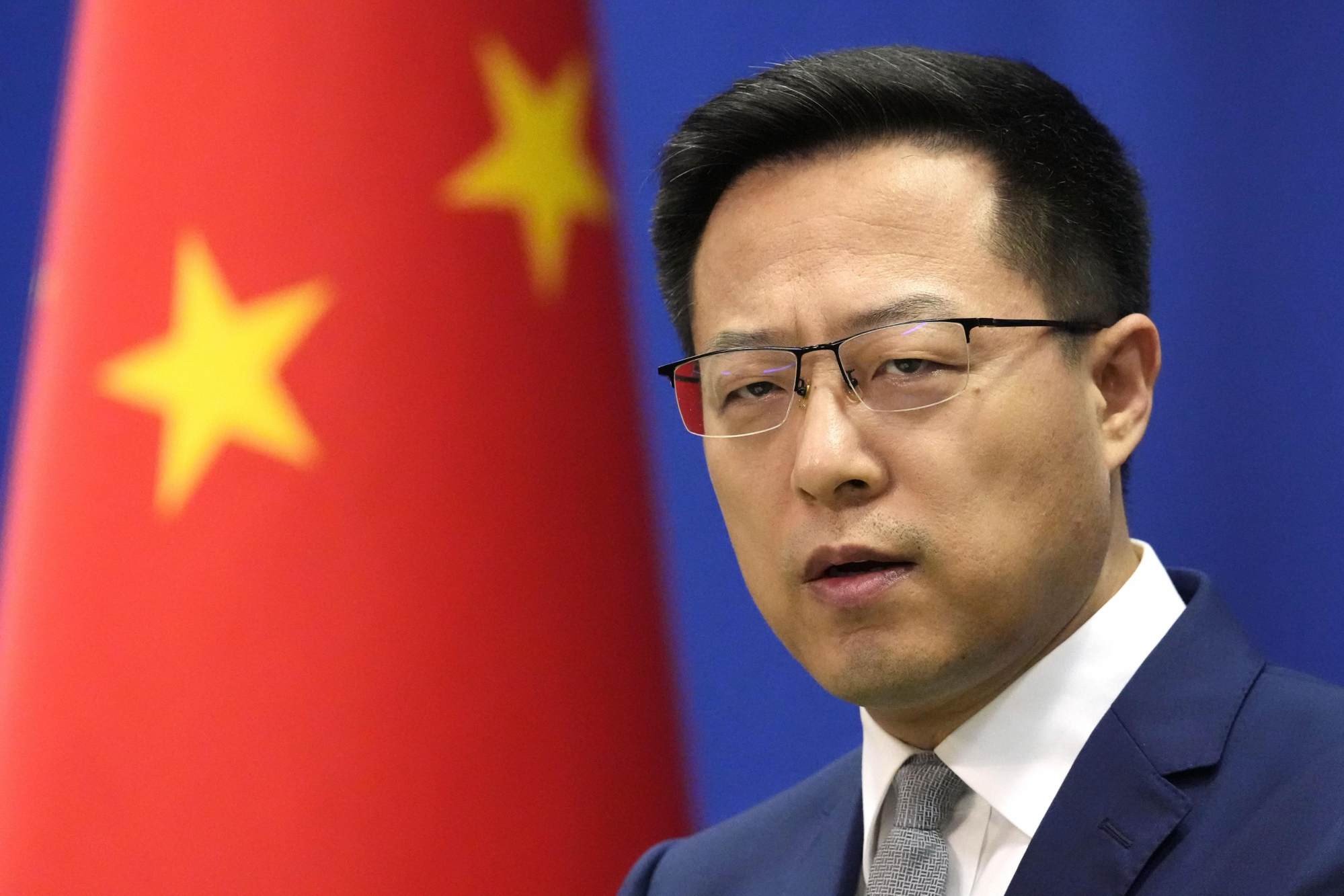– Beijing says first shipments have gone to Ethiopia and Djibouti, and aid for Somalia and Eritrea is ready to be shipped
– Announcement of promised aid comes as Washington and Beijing have been pointing the finger over the global food crisis
China has started shipping emergency food aid to countries in the drought-hit Horn of Africa, days after Washington and Beijing traded accusations over the global food crisis.
Wu Peng, director general of the Chinese foreign ministry’s African affairs department, on Wednesday said Beijing was speeding up efforts to provide emergency aid to help Horn of Africa countries deal with the severe drought.
The region has not had good rains for four consecutive seasons and it has left 18.4 million people facing severe hunger, according to the United Nations World Food Programme (WFP). It said farmers would continue to face widespread livestock deaths. Russia’s invasion of Ukraine has also worsened the food crisis since most countries in the region were heavily dependent on wheat from the two nations.
Chinese Foreign Minister Wang Yi promised emergency food aid to Somalia, Eritrea, Ethiopia and Djibouti early this year. On Wednesday, Wu said the first shipments were on the way. “Glad to know that the first batch of food aid to Ethiopia and Djibouti has been shipped out and those to Somalia and Eritrea are ready for shipment,” he tweeted.

Nazanine Moshiri, International Crisis Group’s senior analyst for climate and security in Africa, said the situation in the Horn of Africa was dire.
“More than 18 million people are suffering extreme hunger in Ethiopia, Somalia and Kenya. In Somalia, more than 200,000 people are facing famine. At least a thousand children have died – those are the cases we know about – millions more are severely malnourished,” Moshiri said.
She said a two-year dry spell, or four consecutive failed rainy seasons – the most prolonged drought in at least 40 years – had decimated livelihoods, killed about 7 million livestock and degraded soil and land.
“Herders and farmers in Kenya told me during a recent research trip, they haven’t seen decent rains in more than two years. There is no relief in sight from the immense pressure,” she said.
Conflicts in parts of Ethiopia and Somalia have also prevented humanitarian access. At the same time, Moshiri said food insecurity was worsening, compounded by rising global food and fertiliser costs in the wake of the Covid-19 pandemic and the war in Ukraine.
Speaking at an event organised by the Centre for Strategic and International Studies in Washington on Monday, Samantha Power, head of the US Agency for International Development, said even before the war in Ukraine began, Beijing’s trade restrictions on fertiliser and grain hoarding were inflating prices.
Power said Beijing offered little transparency on its stocks and production, which might have soothed markets. “Removing export restrictions in its fertiliser exports and releasing some of its grain reserves – either to the global market or to humanitarian entities like the World Food Programme – would significantly relieve pressure on food and fertiliser prices,” Power said.
She said that in 2017, the last time the Horn of Africa faced a severe drought, China had donated US$34 million to the WFP’s response. “Thus far in 2022, they’ve contributed US$3 million to WFP and that’s for global response. The United States has provided US$3.9 billion so far this fiscal year,” Power said.
She said the US would provide a further US$1.2 billion to meet the immediate needs of Somalia, Kenya and Ethiopia – countries facing their worst drought in four decades and a lack of grains, which were previously sourced from Russia and Ukraine. “This is on top of the more than US$507 million we’ve already given to the Horn response.”
The US aid chief has since travelled to Kenya, one of the countries hit hard by the global food crisis, to assess the situation.

China’s foreign ministry hit back at the US claims on Tuesday, saying Washington was partly to blame for the global food crisis. Ministry spokesman Zhao Lijian said the US had “also admitted that the sanctioning of Russia has taken a toll on many countries and made food shortages a reality”.
“We hope that the US will seriously reflect on its disreputable role in the global food crisis and stop smearing and making groundless accusations against China.”
Zhao said that as a developing country, China had no obligation to provide official development assistance. However, he said China “has been actively participating in international development cooperation, providing development resources to UN development agencies, including food and agriculture agencies, and making positive contributions to global food security”.
“China has provided more funding, sent more experts and undertaken more projects under the framework of the Food and Agriculture Organization’s South-South Cooperation Programme than any other developing country,” Zhao added.

At the G20 foreign ministers’ meeting in Bali early this month, Wang proposed that countries should stop imposing export restrictions on humanitarian food purchases by the WFP and that they should facilitate the entry of Russian, Ukrainian and Belarusian agricultural products and inputs into the international market. “Major food-producing and net food-exporting countries should release their own export potential, reduce trade and technical barriers, and control making fuel out of crops, so as to ease the tight food supply in the market,” the Chinese foreign minister said.
But Moshiri said the international response to the crisis had been too slow for the hundreds of thousands of children now at risk of starvation.
“Even before Ukraine happened, early warning systems sent alerts about the risk of food insecurity after failed rains. The Somali and Kenyan governments declared an emergency last year,” Moshiri said.
“Since the war in Ukraine started the focus of donors of course has been elsewhere. The budgets of humanitarian agencies have also been strained by the same commodity shocks. But I think the support is finally beginning to pick up some momentum.”
Guled Ahmed, a non-resident scholar at the Middle East Institute, said neither the US nor China was responding better to the humanitarian crisis in the Horn of Africa.
“Instead of President Joe Biden’s administration aiding African countries by increasing gas production and investing in water infrastructure to mitigate climate change and food security challenges in Africa, his administration is preoccupied with blaming Russia for Africa’s humanitarian crisis,” Ahmed said.
Meanwhile, he said China had failed to step up investment in Africa’s poor water infrastructure, such as that in Somalia. He said the Chinese government could have helped build small dams, solar wells and mini-hydropower facilities to address water shortages and food security instead of planning to deliver emergency aid at the eleventh hour.
Source: https://www.scmp.com/







